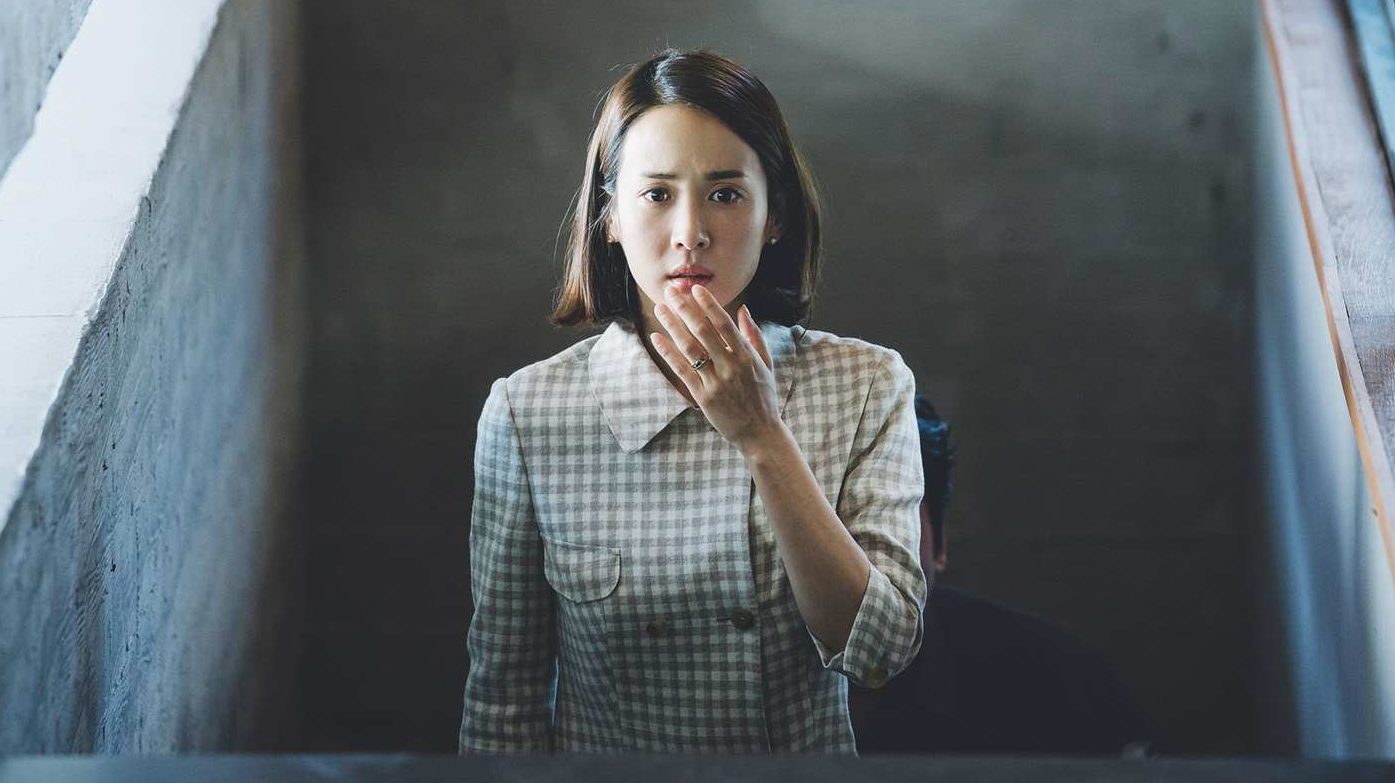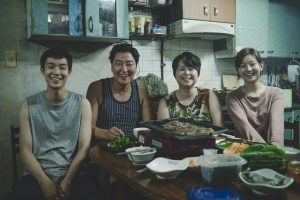3/5 Stars
A moment of untroubled silence settles as an empathetic, and almost inebriated, father lifts his glass to toast his wealthy employers: “They’re rich but still nice.” His wife interrupts, “No. They’re nice because they’re rich.”
This is one of the last peaceful moments in Joon-ho Bong’s Oscar-nominated dark comedy Parasite, as shadows soon emerge from the inky depths of the basement, smiles turn to grimaces of pain, and the manicured lawn runs red.
I first saw Parasite while on my study abroad in Seoul last year, and I remember it being widely anticipated. Especially since Director Bong was an alumnus of my international university, but I do not remember being typically enthralled by the premise of the film.
When the impoverished Kim family of four pose as sophisticated and skilled workers, unrelated to each other, they parasitically attach themselves to the wealthy Park family.
Just when you think the plot is heading one way, it suddenly spikes, flips 180 degrees and reverses back up the rabbit hole.
Many reviews focus on and praise the Kim family for their dark comedic-timing, cunning dialogue and unwavering sacrifice of being lower class.
But to me, the film was average. I had been in Korea for a while by then and had seen many similar movies focusing on the same themes of wealth disparity between classes. It did not seem like anything new.
Yes, the cinematography was praiseworthy, the dialogue enthralling and the cast did wonders performance-wise. But the moment I had left the cinema, I did not give the film a second thought.
Upon my second and most recent viewing, it was the affluent Park family that managed to make a deeper impression on me. In particular, Mrs Park, who was childlike and naive, a kept bird that flutters from one shiny thing to the next.
She is too trusting of the Kim family – so eager and willing to have found a group of people she can rely on, only to be so distraught when those that she trusts violently rip away the life she is familiar with.
I am not saying that she is in any way a victim from the events that transpire within the film. She often belittles the Kims with glassy eyes, and with wealth to spare, a luxury life and a family that while could be a bit more loving, had no major faults. She has not exactly led a hard life. And as Mrs Kim pointed out earlier in the review, she is nice because she is rich.
Yet, I felt a distinct need to protect the stay-at-home wife. Actress Yeo-jeong Cho brings light to her performance as Yeon-gyo Park. Known for utilising sexually promiscuous roles, her bright-eyed and innocent nature mixed with the seductive ampleness of wealth painted a perfect picture of abundance.
There is a disquieting dread surrounding her empty and echo-filled birdcage, where, while you may think her main concern is when her next social appearance will be, is, in fact, the safety and wellbeing of her family.
Her wealth is distributed towards the thing she cares most about. She hires the Kim family, albeit unknowingly, to meet their needs. Can it be her fault for trusting those who so desperately sought to take advantage of her?
At the end of the movie, director Bong makes a point of keeping the narrative circular. Each family is in no better position than when they started, perhaps filled with a bit more grief, and if anything, the Kim family seem worse off.
Where did all the grovelling get them?
Watched the film and want more? Read The River’s article on the next 5 international films you should watch.


